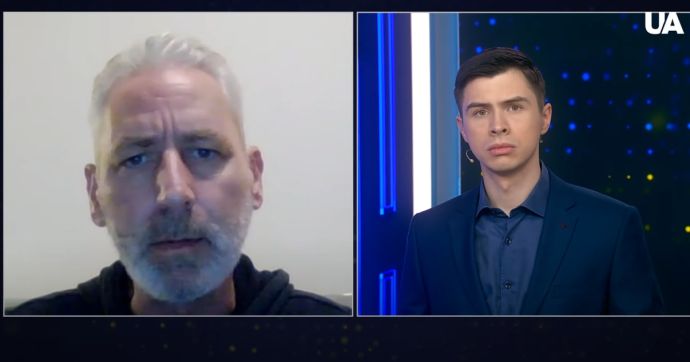As the time of Trump is near, the world is actively discussing possible peace discussions between Ukraine and Russia. But what peace can be with people who want to destroy the other country and nothing less? Ukraine must have reliable security guarantees, not just written on paper but backed by real strength.
We have discussed this with Paul Niland, founder of the Lifeline Ukraine mental health help service.
— Today, I’ve spoken on the episode more about the security guarantees possible for Ukraine when entering peace talks with Russia. We had a dialogue between President Zelenskyy and President-elect Trump in Paris, and Reuters sources cited that it was a good, productive conversation. President Zelenskyy seemed ready to discuss some security guarantees and possible outcomes of the current situation. What do you think about that? Is it possible?
— I think the best security guarantee Ukraine can aim for is the destruction of the enemy’s military capacity. That’s the only real security guarantee for Ukraine: stopping Russia’s ability to continue its war.
When it comes to international dialogue about security guarantees, we must remember that Ukraine has already had multiple guarantees for its sovereignty, independence, and territorial integrity, some signed with Russia. Chief among them is the Budapest Memorandum. Ukraine gave up the world’s third-largest nuclear stockpile under it. While the U.S. and the UK have been staunch allies since the full-scale invasion, Russia blatantly tore up its obligations under the memorandum.
If another international treaty is required to ensure Ukraine’s security, the details must be carefully scrutinized. However, the simplest and most effective solution is Ukraine’s membership in NATO. NATO’s protections would provide lasting security, and that is what the majority of Ukrainians want. While there may be objections from some NATO members, once Ukraine secures victory, these obstacles must be overcome.
— What about the Putin regime in Russia? Could the war end if the regime crumbles? For example, we’ve seen the rapid fall of regimes like Assad’s in Syria under pressure from well-organized rebels. Could this be possible for Putin’s Russia?
— When you mention the fall of Putin, it brings a smile to my face. I’ve even seen bags in Kyiv with slogans like, “Sex is great, but what about the death of Putin?”
Regarding Assad, the speed of his regime’s collapse was shocking, even to the rebels themselves. They advanced rapidly, filling the void left by Assad’s departure. Putin’s regime could face a similar fate. Regimes that seem invincible can crumble astonishingly fast when the tipping point is reached.
Prigozhin’s brief mutiny demonstrated this vulnerability. He took military headquarters in Rostov-on-Don without resistance and began a march toward Moscow. Although he didn’t succeed, it revealed cracks in the regime. Putin’s paranoia is based on real threats: coups, uprisings, or even internal military rebellion. His regime is unstable, largely due to the catastrophic miscalculation of invading Ukraine.
— But this all takes time and resources. Will Ukraine have enough of both while waiting for the regime to collapse? President-elect Trump has hinted that U.S. support for Ukraine may shrink, potentially forcing negotiations before Ukraine is ready.
— We have a few months before Trump’s inauguration. During this time, the Biden administration is working to send as much military aid as possible to strengthen Ukraine’s position.
If Trump reduces support, it’s possible some Republicans will argue that Ukraine should be allowed to finish the job, given Russia’s current state. Their losses are staggering—760,000 dead or wounded soldiers since February 2022. Many believe Russia’s military is incapable of sustaining more damage, and Ukraine should deliver the final blow.
However, Trump’s stance on negotiations is concerning. Russia’s demands—like annexing more territories—remain unacceptable. If Trump’s administration sees backing off as a loss for the U.S., it might lead to an increase in support to ensure a position of strength for both Ukraine and the U.S.
— Long-range strikes, like hitting Russian depots and airbases, seem crucial to breaking their resolve. Could this be key to ending the war?
— Absolutely. Long-range strikes targeting logistics, depots, airbases, and command centers could significantly weaken Russia’s capacity. Figures like Lt. Gen. Ben Hodges have been advocating for providing Ukraine with every tool necessary to strike effectively.
Trump might authorize these measures to avoid being seen as weak or losing. While I have many criticisms of Trump, his dislike of being perceived as a loser could work in Ukraine’s favor. Framing this conflict as one where backing down equates to losing could push his administration toward doubling down on support for Ukraine.
Read also: New Power in Syria – What Happens Next? Interview with Andreas Umland










